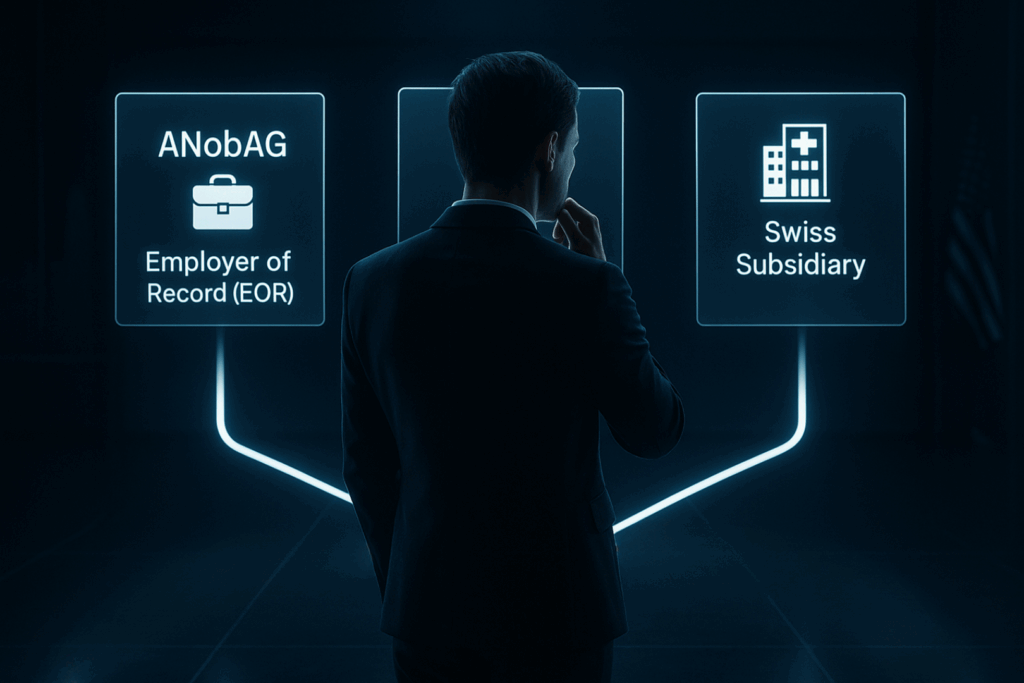Quasi Residency

On January 1, 2021, the new regulation of the withholding tax ordinance came into force. This is intended to put persons liable to withholding tax in Switzerland who are resident abroad on an equal tax footing with employees living in Switzerland who are subject to regular tax assessment there. For this purpose, the construct of quasi-residency was introduced. This article explains what you need to know about this new regulation.
What Is Quasi-Residency?
Quasi-residency refers to the status of an employee who lives outside of Switzerland but earns most of his or her income there by working in Switzerland. These persons are liable for tax in Switzerland even though they do not live there, even if they have rented an apartment in Switzerland and only return to their residence abroad on weekends. In Switzerland, they therefore pay withholding tax.
The criterion for quasi-residency is that the taxpayer concerned earns at least 90 percent of his or her worldwide gross income in Switzerland. In the case of spouses, the total income is taken as a basis, i.e. at least 90 percent of the total gross income must also be earned in Switzerland in this case.
The worldwide gross income includes: income from gainful employment, rental income (also imputed rental value when living in a condominium abroad), interest and dividends, as well as possible other income.
Before the new regulations, it was not possible for people living abroad and working in Switzerland to file a Swiss tax return and had to apply to a withholding tax correction. With the introduction of quasi-residency, this has now been changed and taxpayers have the possibility to file an application for subsequent ordinary assessment.
Example of Quasi-Residency and Gross Income
A person working in Switzerland is resident in Germany. They work in Switzerland during the week and returns to Germany on weekends. Their income in Switzerland is CHF 250,000. The spouse is employed in Germany and earns the equivalent of CHF 20,000. The total gross income of the household is therefore CHF 270,000.
In percentage terms, the income is made up as follows:
Share earned in Switzerland: 92.6%.
Share earned abroad: 7.4%.
In this case, there is quasi-residency and the Swiss taxpayer may apply for a subsequent ordinary assessment in Switzerland.
How Do I File an Application for Retroactive Ordinary Assessment?
If the requirements for quasi-residency are met in the respective tax year, taxpayers may file an application for retroactive ordinary assessment with their competent cantonal tax authority. The deadline for submitting the application is March 31 in the following tax year.
Example:
In the 2021 tax year, a taxpayer generated 90 percent of worldwide income in Switzerland. They can then file an application for subsequent ordinary assessment until March 31, 2022. If the taxpayer is married, the application must also be signed by the spouse to become legally effective. It is necessary to have an address for service in Switzerland. If this is not the case, a representative in Switzerland must be appointed to whom the tax return documents can be delivered.
After completing and submitting the tax return, the tax authority checks whether quasi-residency actually exists. If this is the case, the regular assessment is made and offset against the withholding tax already paid. If there is no quasi-residency, the assessment is rejected and the withholding tax deduction is final.
Tax Return Cost Calculator
Do you seek a quick idea of the cost of our tax return service? If we have sparked your interest, you can send it to us without reservations, as it is a non-binding request. We will contact you promptly to discuss your situation with you.


